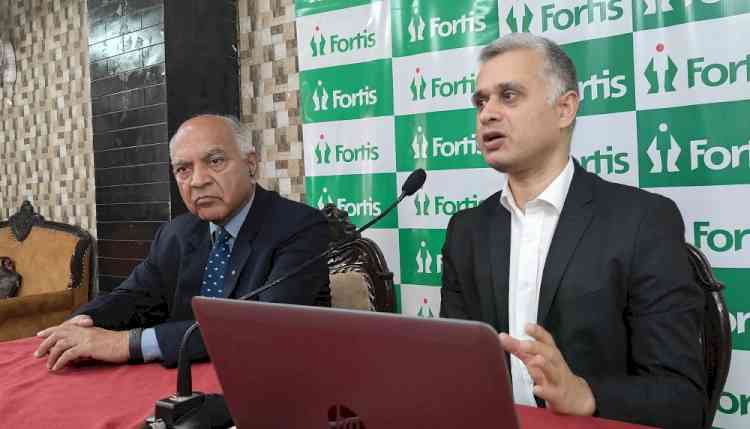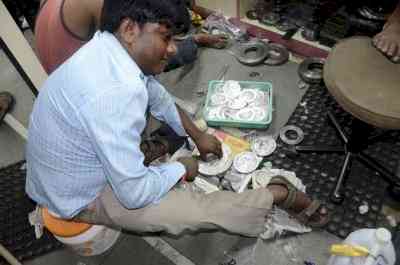Fortis Mohali Performs Non-Surgical TAVR Procedure to Replace Diseased Heart Valve in 73-Year-Old Woman
In a remarkable achievement, the Cardiology Department at Fortis Hospital Mohali has given a new lease of life to a 73-year-old woman, weighing only 43 kg, through the most advanced cutting-edge technology of Transcatheter Aortic Valve Replacement (TAVR).

Ropar, February 14, 2024: In a remarkable achievement, the Cardiology Department at Fortis Hospital Mohali has given a new lease of life to a 73-year-old woman, weighing only 43 kg, through the most advanced cutting-edge technology of Transcatheter Aortic Valve Replacement (TAVR).
The team of doctors led by Dr Ankur Ahuja, Senior Consultant, Cardiology, Fortis Hospital Mohali, gave a new lease of life to the elderly woman suffering from the high-risk ailment without any major complications.
TAVR is a minimally invasive procedure to replace a diseased aortic valve -- that is narrowed and does not open fully -- with a man-made valve. This innovative treatment involves implanting a new aortic valve through the groin route, eliminating the need for traditional open-chest surgery.
The patient was presented with symptoms of shortness of breath and heart palpitations, prompting her to seek medical attention from Dr. Ahuja at Fortis Mohali. Subsequent medical investigations revealed a diseased aortic valve, which, if left untreated, could lead to heart failure, chest pain, and even death.
Dr Ahuja conducted TAVR on the patient wherein her diseased aortic valve was replaced with an artificial valve on 17th November, 2023. Subsequently the patient underwent angioplasty (procedure to widen blocked or narrowed arteries) and stent to one of her coronary arteries with rotablation and IVUS assistance. While rotablation involves delivering stents in hardened arteries to improve blood flow, intravascular ultrasound (IVUS) is an imaging modality to detect plaque burden, stent sizing etc.
The patient experienced a smooth post-operative recovery, with her kidney function improving despite the contrast used during the procedures, which can sometimes worsen kidney function. She was discharged five days after surgery and has since been leading a normal life.
Reflecting on the case, Dr. Ahuja stated, "The patient has been regularly monitored and continues to enjoy a healthy life. Swift medical intervention played a crucial role in saving her from this life-threatening condition."


 City Air News
City Air News 







